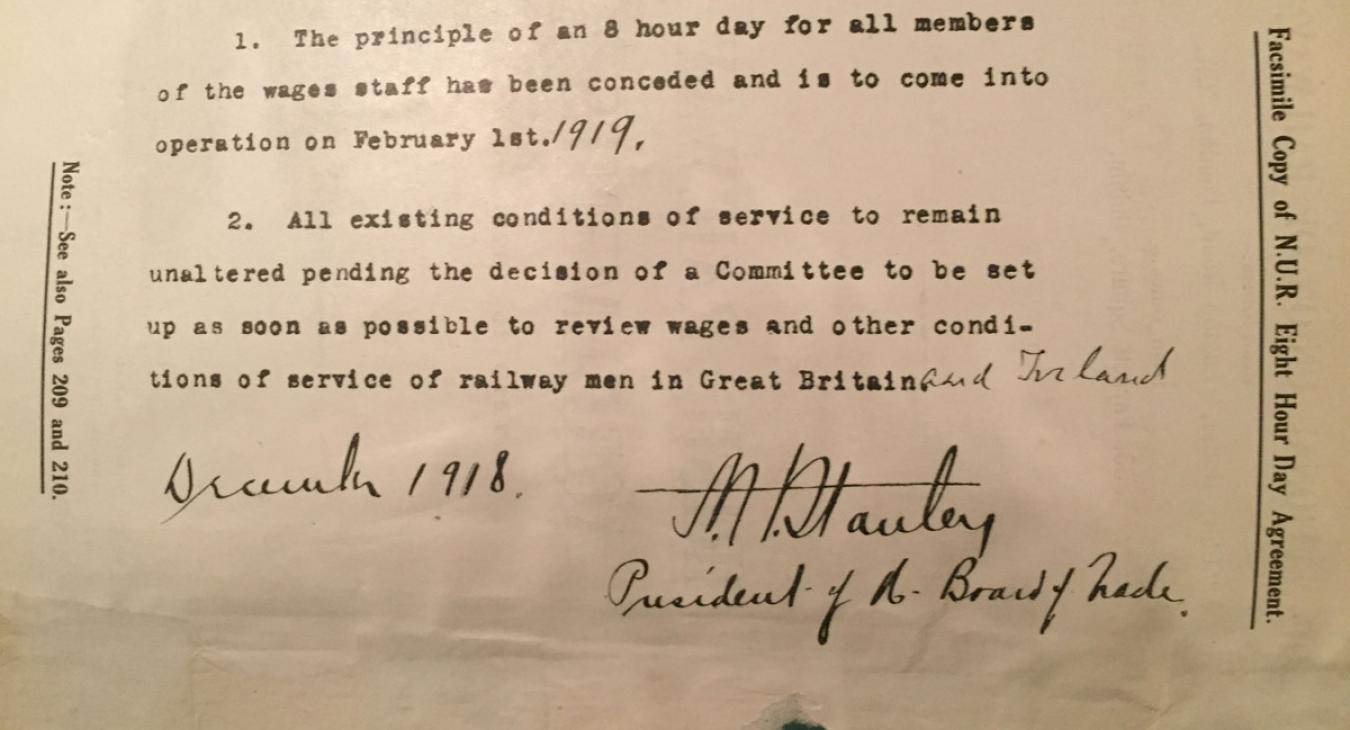
This year is the centenary of the munitions strike, which was one of the largest manifestations of passive resistance during the war of independence. The campaign was undertaken by railwaymen who refused to handle or to operate trains carrying munitions of war or armed troops and police. The phrase 'strike' is a misnomer, because the action involved individual railwaymen refusing to handle traffic and being dismissed. The majority of railway workers stayed on the payroll. This was a deliberate tactic devised by the railwaymen and by Congress to ensure that the strike could be financed for a long period of time.
Congress organised and administered a strike fund of £115,000 or £1.5 million in today's money. This was used to pay strike pay to the 1,000 railwaymen and 500 dockers who had been dismissed.
The strike severely restricted the movement of Crown Forces for most of 1920. After seven months the British responded by seeking to close down the railway system, which was then indispensable to the social and economic life of the country and crucially to the distribution of food. The Congress Executive met on 14 December and decided that:
Changed conditions require a change of tactics, and we have decided to advise the Railway and Dock Workers to alter the position and to offer to carry everything that the British Authorities are willing to risk on the trains.
What were these new developments? Apart from the threat to food supplies, the months of November and December 1920 were amongst the bloodiest months in the struggle, with the shooting of British intelligence officers by the IRA and the subsequent attack on Croke Park by RIC auxiliaries on 21 November and the wiping out of a unit of the RIC auxiliaries at Kilmichael on 28 November. On 10 December, the British proclaimed martial law in Cork, Kerry, Limerick, and Tipperary. On the night of 11 December, locomotive driver James Lawlor, coming home from work in Lismore was shot by British troops after 'failing to respond to a challenge'. RIC auxiliaries burned Cork City on 11/12 December.
NUR delegates met in Dublin on 21 December. A motion for a full resumption of work was passed unanimously. The railwaymen had gone as far as they could go and decided to follow the advice of Congress. The strike was over. It had, according to General Sir Neville Macready, Commander of the British Forces in Ireland, disrupted campaigning for the best part of a year.
For a more complete description of the munitions, strike watch out for a forthcoming pamphlet on the strike due for publication in the new year.
Dr.Peter Rigney

